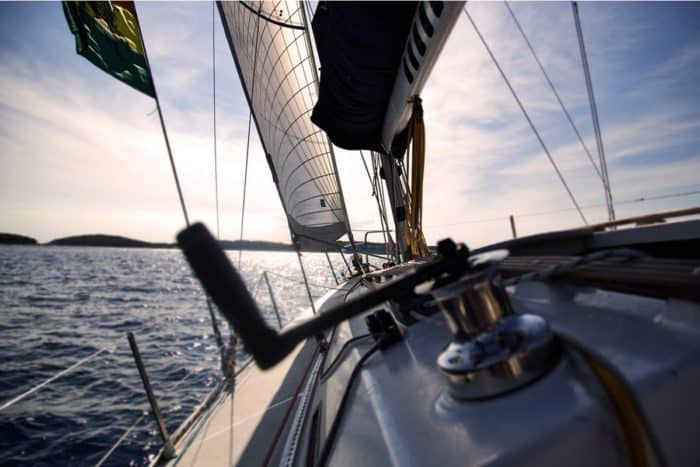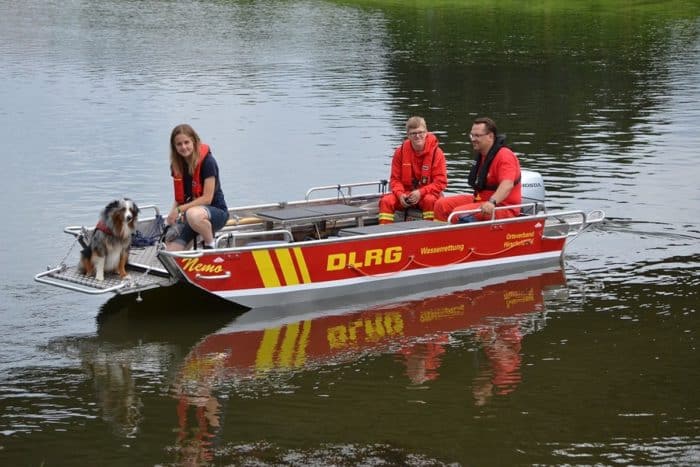Who Invented the Boat
There is evidence to suggest that some of the first boats may have been made by our prehistoric ancestors, literally predating humanity itself, as far back as one million years ago. There is stronger evidence of early boats around 900,000 years ago in Indonesia, and 130,000 years ago in Europe. Because these things are so incredibly old we’ll never know for sure if boats ever had one single true inventor and it’s likely that multiple people in multiple places and times all came to realize that certain things, notably logs and branches, allowed them to stay afloat in the water and the idea to turn these things specifically into a device to travel on water was born from that realization.
The Creation of the Earliest Boats

Homo erectus were early humans that even predated the Neanderthal, what most people consider cavemen. These prehistoric ancestors date back nearly two million years. Their name means “upright man” and, as such, they were the first of our ancestors to walk on two legs like us. They had the ability to make tools and potentially cook over fires. They may have made the oldest boats in the world.
The idea that they were sailors comes from how widespread fossil evidence is. Homo erectus began in Africa but there is evidence of them in Crete, in parts of Asia, and places that only could have been reached after a lengthy journey at sea. So even though we have no physical evidence of their ability to make boats or what they may have looked like, there is a good chance they were able to make primitive vessels and successfully sail them great distances.
While some experts believe homo erectus may have made dugout style canoes, others suggest that it’s more likely these ancient people were able to navigate the sea in what today would be considered incredibly primitive rafts. This style of boat would also explain why we have no evidence of them today as a dugout canoe, which we’ll see later on, at last potentially leaves physical evidence. But if the lashings on a raft come apart, which they obviously would over time, then you simply have a jumble of cut reeds or logs that would leave no archaeological evidence of its existence or purpose at all. Reed boats made of things like papyrus reeds would have decayed ages ago.
Not all historians agree that this happened, but many do. Evidence from the Indonesian island of Flores was dated to about 900,000 years ago. There were stone tools found on the island, which had no native human population, and was only accessible across an 11 mile wide stretch of water at low tide. There was literally no way to reach it except by boat.
This history of boating is fairly significant because, aside from the obvious, it changes how history has to look at our ancestors. For many years it was believed primitive ancestors of man were not very smart. But any people that could build boats and successfully travel hundreds of miles on the open sea had to be fairly smart. How many people today could make their own boat from scratch and do the same?
Boating is something much older than history thought and mankind’s ability to navigate the sea and build vessels has been on our blood much longer than many suspected.
Early Boats in Europe
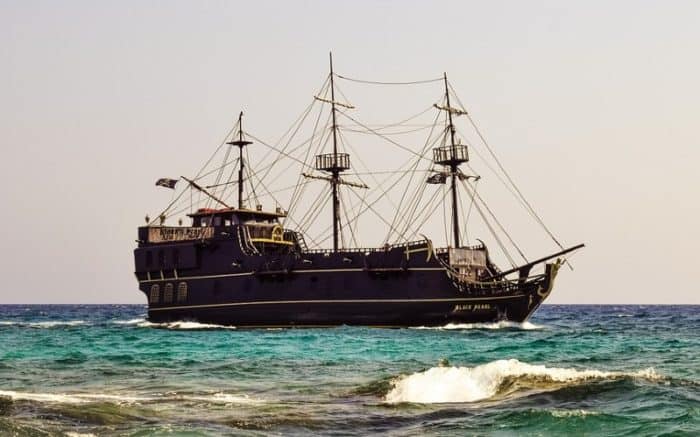
The island of Crete in Greece gives us some of the earliest European evidence of boats, dating back 130,000 years. A survey of numerous sites on the island turned up a wide array of tools and other artifacts that were dated to that time. Crete has been a secluded island for five million years which meant the only way anyone could have gotten there to leave and/or produce those artifacts was by boat.
Like Flores, there is no direct evidence of the boats used by the people who ventured to this island, but the fact someone was on the island is evidence in and of itself. Unfortunately it just means there are a lot of questions about the nature of the boats, how simple or complex they may have been, and so on.
Evidence of Boats in North America

In school, many of us are taught that people crossed the Bering Strait land bridge around 11,500 years ago. This was said to have occurred during the last ice age and these people, the Clovis people, spread out and populated the continent. And while there is evidence that this happened, it doesn’t preclude the evidence that other people came to North America even earlier and they did so by boat. In fact, boats played an important role in shaping the continent.
Archaeological evidence that dates back 13,000 years indicates people came to the Mexican island of Cedros by boat. There are over a dozen sites featuring artifacts that can be dated to this time which really throws the history of how North America was populated into doubt. But it also shows that seafaring people and boat making was incredibly advanced even that far back.
One of the discoveries on the island of Cedros was a fish hook made from a seashell that was deemed to be about 11,500 years old. It’s the oldest fish hook ever found in the Americas. This is again in contrast to older beliefs that early North Americans didn’t fish much but instead relied on hunting big game to get by. The truth is that seafaring has been a part of this continent’s history for as long as it has had a human history.
Some evidence indicates that people in a place called Beringia, which would have been in the Bering Strait but is now most submerged, were sailing down the coast of North America to as far away as Chile, around 14,500 years ago. This predates the Clovis people by over 1,000 years and shows a lot more went into populating the Americas, much of which had to happen thanks to boats.
There is some evidence, still subject to debate, that the dates may stretch back 18,500 years. Additional evidence suggests that, due to the glaciers covering much of Canada at the time, it would have been impossible for people to actually spread across North America on land. They would have had to use boats.
Later in history the first steam powered ships were also invented in North America in the early 1800s.
Who Invented Boats To Cross the Sea?

Boats that can cross straights are one thing, but there is some evidence to suggest earliest Australians were some of the most adept seafaring people in history with evidence of their boats dating back 60,000, adding considerable time to previous guesses which were around 40,000 years.
If people arrived in Australia 60,000 years ago then, again, they did so by boat. It’s unknown who made the early voyage and there is controversy over whether they were homo erectus or some early version of homo sapien. But all of that aside, it can’t be denied that someone made the perilous trek across the sea to Australia tens of thousands of years in the past and the only way they could have done so was by boat.
The Oldest Boat in the World
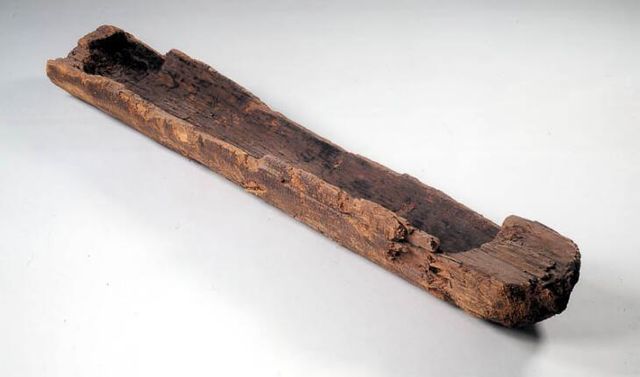
As we’ve seen there is a lot of evidence that boats did exist but no evidence of the actual boats. And really, that makes sense. Early boats had to have been very simple and their ability to withstand tens or even hundreds of thousands of years would have been all but impossible.
The oldest recovered boat we have is called the Pesse Canoe. Carbon dating of the boat tells us it comes from somewhere between 8040 BCE and 7510 BCE, meaning it could have been made more than 10,000 years ago. You can actually see the vessel yourself in a museum in the Netherlands.
The canoe is very rudimentary, just a hollowed out log made in the dugout style. It started life as a log of Scots Pin but some kind of tool was used to dig a seating area out of the inside, possibly stone or even antler.
The boat was actually discovered in a peat bog when locals were building a highway and a farmer realized it was more than just a log. It was taken to a university and they confirmed what it was. In terms of maritime history, it’s arguably the most important discovery of all time.
Ironically, after its discovery, some experts questioned whether it would even work because, in fairness, it’s not a very impressive looking vessel at all. An exact replica of the boat was made and then used, proving it absolutely was a sea-worthy vessel.
Many miles away in Dufuna, Nigeria, another canoe was found in 1987. This one was dated to about 8,500 years ago making it the oldest canoe in Africa and further proving how likely it was that this level of technology for making ancient boats was probably independently discovered by many different people around the world at different times as the odds on those people in the Netherlands somehow showing people in Nigeria how to build a dugout canoe are pretty slim.
Other Ancient Vessels
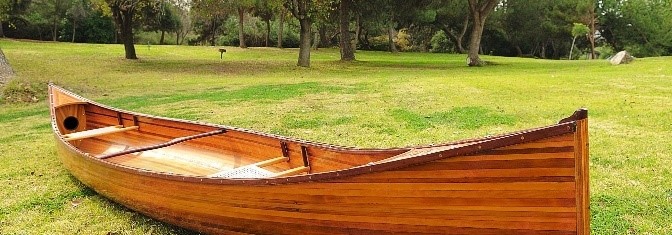
The Dover Boat, the Khufu Boat and the Salme Vessels are all additional examples of boats made over 2,000 years ago that have been discovered in various places around the world. The Dover Boat is the oldest vessel in England and may have been constructed as early as 1575 BC.
The Khufu Boat is believed to have belonged to the Egyptian Pharaoh Khufu and was sealed in a tomb at the Pyramids of Giza in 2,500 BC, meant to ferry the Pharaoh to the afterlife. Ancient Egypt was known for making many sailing ships and fishing boats and evidence of them can be seen in numerous pictures from the time. They even produce large vessels that could handle many passengers. It’s also believed the Egyptians invented sailing vessels as well.
The Salm Vessels date to the year 750 or so and were funerary vessels. The boats contained the remains of 40 people along with weapons and other artifacts.
Who Invented the Motor Boat
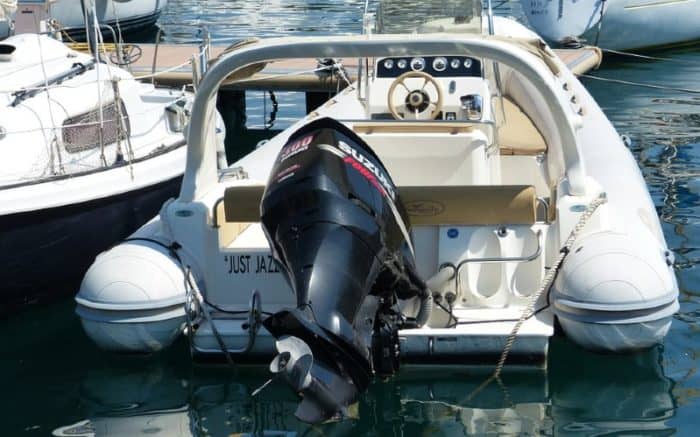
In terms of boating evolution, arguably nothing changed boating more than power. Manual and wind powered boats have existed for millennia, but the motor boat was a great step in what a boat could do. Gottlieb Daimler and Wilhelm Maybach are credited with inventing the first motor boat back in 1886.
It’s worth noting that propeller driven boats had already existed, but these were on steam powered vessels. Daimler and Maybach made the first boat that used a combustion engine that ran on gasoline to power a seafaring vessel and clearly their invention was a hit.
The boat they created had a one cylinder, one horsepower engine so it was not used for wakeboarding by any means.
The Bottom Line
The true inventor of the boat is lost to history and it may be that tens or even hundreds of different people independently stumbled upon the idea and created their own versions over the years. Indirect evidence of boats, which is to say evidence of humans in places only accessible by boat, dates back close to one million years in some cases. It’s possible that the boat was not even invented by humans but by our ancient ancestor homo erectus, the upright man.
Categories: Boats
